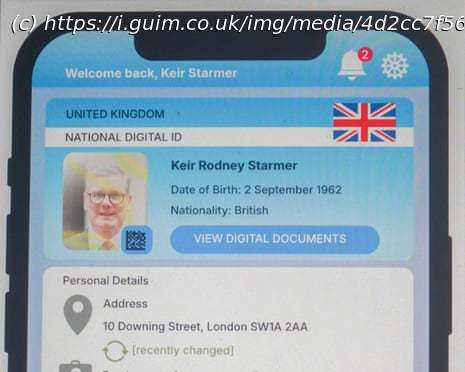Cyber security expert offers warning as tech companies prepare to bid for potentially multi-billion pound contracts
Cyber security expert offers warning as tech companies prepare to bid for potentially multi-billion pound contracts
Keir Starmer’s plan for digital IDs risks creating “an enormous hacking target”, a cybersecurity expert has warned, as technology companies prepared to bid for contracts that could run into billions of pounds.
Amid widespread opposition, the prime minister said the mandatory digital ID – including citizens’ photos, names, dates of birth, nationalities and residency status – would come into use by July 2029.
The government said the ID would sit in a digital wallet on citizens’ smartphones and use state-of-the-art encryption. But Alan Woodward, a professor and cybersecurity expert at the University of Surrey, said that if the data is also held on a vast database to allow for cross-referencing, “it’s painting a huge target on something to say ‘come and hack me’”.
The government has not yet provided detail on how it would make the system work, sparking calls for greater transparency. Woodward’s warning comes amid rising public concern about criminal data breaches, which this week hit a chain of children’s nurseries and saw photos of infants leaked on to the dark web and continued to cripple Jaguar Land Rover. Data, including photographs, has previously been criminally exfiltrated from a government ID system in Estonia, according to reports.
Ministers said the new digital ID – which has been dubbed “Britcard” – would tackle small boat crossings by making it tougher to work illegally in the UK. But they also said it could be used for applying for welfare, driving licences, childcare and access to tax records. The plan was criticised by civil liberties campaigners and leaders of the Liberal Democrats, Sinn Féin in Northern Ireland and the SNP in Scotland.
Home
United States
USA — Financial Digital ID plan for UK risks creating ‘an enormous hacking target’, expert...






